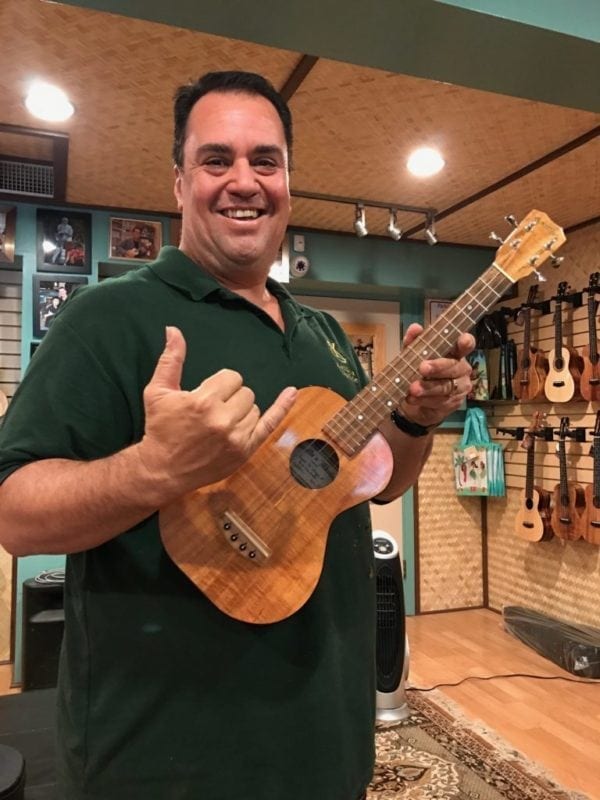Blog
Just Ask Joe: Intonation

Joe Souza, master luthier and visionary of Kanile`a `Ukulele, shares his thoughts on all things `ukulele.
Q: I just started playing `ukulele and everybody talks about how important intonation is. I’m too ashamed to say out loud that I don’t really know what they’re talking about. Can you explain it to me? -Anonymous for obvious reasons
JOE: I’m happy to help! My apologies if this sounds a little technical but achieving perfect intonation really is a science.
Intonation is how true a note is to pitch as the player moves up the fingerboard. A “true” instrument, when properly set up, should produce the same note as an open string just one octave higher (e.g. open A string first course 440Hz, twelfth fret 880Hz). Another test is to play a 12th fret “harmonic” and then check it with a fretted 12 fret note. A “true” instrument should hit each note played exactly to the frequency that is required (G=392 Hz, C=261.6 Hz, E=329.6 Hz and so on).
For Kanile`a, intonation is the most important facet in building a fine instrument. This is followed very closely by playability. Now, how do we achieve perfect intonation? It would be very simple to just double the measurement from the twelfth fret, glue on the bridge and say it’s close enough, right? Many builders still build instruments this way. They believe that only a trained ear could hear the difference. Not true! As a player develops their skill they will appreciate having their instrument stay in tune as they progress up the fingerboard. Each Kanile’a ‘ukulele has a scale length that has been compensated for our setup and allows for each note to be at perfect pitch. A computer program designed jig that cuts our fingerboard slots, rides in a keyway that ensures a perfectly placed slot each and every time.
Now understand, an instrument moves and wood breathes. We address these problems with a controlled building environment and utilizing properly seasoned woods.

What we cannot control is an individual’s playing-style. This will eventually play a role in the instrument’s intonation. If a player is a hard strummer and bends his strings during chording (which elongates the strings and throws off the pitch) this can affect intonation. This type of player should change their strings often to ensure intonation stays proper.
Got a question? Just ask Joe! justaskjoe@kanileaukulele.com


